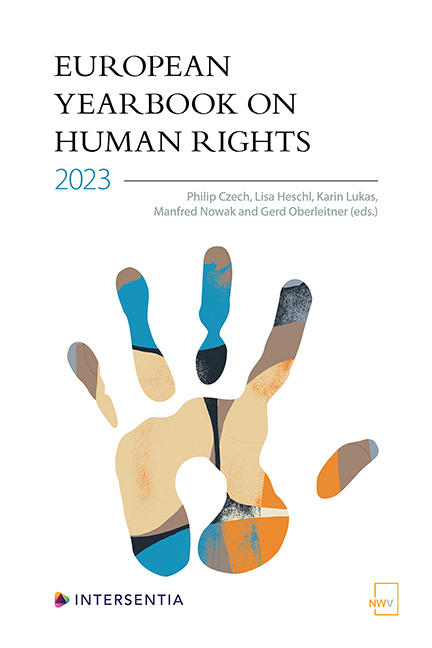Pavel Šturma and Milan Lipovský (eds.): The Crime of Genocide: Then and Now: Evolution of Crime
Published online by Cambridge University Press: 04 April 2024
Summary
The Crime of Genocide: Then and Now: Evolution of a Crime is an anthology of carefully selected monographs authored by distinguished legal scholars, edited by Pavel Šturma and Milan Lipovský. This comprehensive work explores the phenomenon of genocide through the lens of international criminal law, and the law of state responsibility for internationally wrongful acts, in the 70 years since the introduction of the term to the legal world. Each chapter presents the viewpoints of individual contributors, collectively providing invaluable insights into timeless and contemporary aspects of the international crime of genocide. The book's central objective is to present a fresh and innovative perspective on how genocide is conceptualised. Special attention is given to the particularities and complexities of the crime, without interfering with the definitional issues around genocide.
The initial part of the book scrutinises the theoretical underpinnings of genocide. Pavel Šturma, in his essay, delves into the analysis of criminal responsibility for this crime. He posits that a departure from exclusive individual criminal responsibility is necessary, advocating for a more nuanced approach that recognises and embraces state responsibility as well. Then, Markus P. Beham's contribution focuses on the process of categorising the phenomenon and establishing a legal framework. Tracing the evolution of the conceptualisation of genocide within the realm of international law, the discourse ultimately delves into the appropriate methods of fairly labelling the atrocity.
The following part delves into the intricacies of criminal liability. Michala Chadimová specifically examines the mens rea and dolus specialis elements of the crime of genocide. Her primary inquiry revolves around the extent to which this specific ‘intent to destroy, in whole or in part, a national, ethnical, racial or religious group, as such’, hinders the advancement of jurisprudence in the field. She further notes that establishing the presence of dolus specialis poses a formidable challenge. Nikola Kurková Klímová then continues the discussion by shedding light on the complexities surrounding attempted genocide. Despite the recognition of attempted genocide as a punishable offence under the provisions of ICTY-ICTR Statutes, the Courts appear hesitant to render relevant convictions.
The third part discusses the exhaustive list of protected groups under the definition of genocide, and its potential implications. Veronika Bílková conducts an analysis of protective mechanisms against genocidal attacks falling within the purview of the definition.
- Type
- Chapter
- Information
- European Yearbook on Human Rights 2023 , pp. 693 - 696Publisher: IntersentiaPrint publication year: 2023

